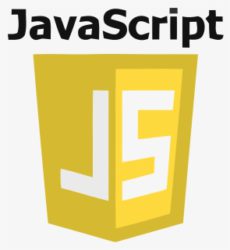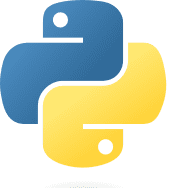Top 10 Metaverse Programming Languages For Game Development

The metaverse refers to a virtual reality (VR) or augmented reality (AR) environment where users can interact with each other and a persistent virtual world. It’s a digital universe that goes beyond the confines of individual virtual reality experiences and aims to create a seamless and interconnected space where users can engage in various activities, such as socializing, gaming, commerce, education, and more. In order to build and develop the metaverse, a combination of programming languages, frameworks, and technologies would likely be employed. Here are some aspects that might be relevant when discussing metaverse programming languages:
1. Virtual Reality and Augmented Reality Development: Creating experiences for the metaverse would involve working with programming languages and frameworks specific to VR and AR development. Some popular languages in this domain include C#, C++, UnityScript (Unity’s scripting language), and UnrealScript (Unreal Engine’s scripting language). These languages enable developers to design and implement virtual environments, objects, and interactions within the metaverse.
2. 3D Modeling and Animation: Building the virtual world of the metaverse often requires 3D modeling and animation skills. Programming languages like Python, JavaScript, and C++ can be used in conjunction with libraries like OpenGL or WebGL to create realistic 3D environments, objects, and character animations.
3. Game Development Frameworks: Many aspects of the metaverse involve game-like interactions, such as physics simulations, user input, networking, and asset management. Game development frameworks and engines like Unity and Unreal Engine provide tools, APIs, and scripting languages that facilitate the creation of metaverse experiences.
4. Web Technologies: As the metaverse aims to be an interconnected space, web technologies would likely play a crucial role. Programming languages like HTML, CSS, and JavaScript would be essential for creating web-based interfaces, user interactions, and building applications that can access the metaverse.
5. Blockchain and Cryptocurrencies: Some proponents envision the metaverse as a decentralized environment built on blockchain technology. Smart contract languages like Solidity (used in Ethereum) or other blockchain-specific programming languages might be utilized for developing decentralized applications (DApps) and implementing features like virtual property ownership, digital currencies, and secure transactions within the metaverse.
It’s important to note that the concept of the metaverse is evolving rapidly, and new technologies, frameworks, and languages might emerge or become more prominent as the field develops. The programming landscape for the metaverse would likely be a combination of existing languages and tools, as well as new technologies specifically designed to cater to the unique requirements of creating and maintaining a virtual universe.
Why you should learn Metaverse programming languages
1. Future-Proof Your Skills: The metaverse is an emerging concept with the potential to revolutionize various industries, including gaming, entertainment, social networking, education, and commerce. By learning programming languages and technologies associated with the metaverse, you can position yourself at the forefront of this technological shift. Acquiring skills relevant to the metaverse can enhance your professional prospects and provide opportunities for involvement in cutting-edge projects.
2. Expanding Job Opportunities: As the metaverse evolves, there will be an increasing demand for professionals with expertise in metaverse development. Companies involved in virtual reality, augmented reality, gaming, and blockchain may seek developers who can create immersive experiences, design interactive virtual environments, implement decentralized systems, or build metaverse-related applications. By learning metaverse programming languages, you can tap into these emerging job opportunities and potentially explore unique career paths.
3. Innovative and Creative Development: Developing for the metaverse opens up a realm of creative possibilities. The metaverse combines elements of virtual reality, augmented reality, game development, and web technologies, allowing developers to create immersive experiences that blend physical and digital worlds. Learning metaverse programming languages enables you to explore innovative ideas, design interactive environments, craft compelling narratives, and bring unique experiences to life.
4. Interdisciplinary Collaboration: The metaverse is a multidisciplinary field that brings together professionals from various domains, such as computer science, game development, user experience design, 3D modeling, animation, and more. By learning metaverse programming languages, you can bridge the gap between different disciplines and collaborate effectively with experts from diverse backgrounds. This cross-disciplinary collaboration fosters creativity, encourages knowledge sharing, and facilitates the development of complex metaverse projects.
5. Personal Growth and Exploration: Learning metaverse programming languages can be an exciting journey of personal growth and exploration. It allows you to delve into cutting-edge technologies, experiment with novel ideas, and push the boundaries of what is possible in virtual and augmented reality. As the metaverse evolves, you can stay up to date with the latest developments, contribute to open-source metaverse projects, and actively participate in shaping the future of this transformative concept.
It’s important to note that the metaverse is still an evolving concept, and the specific programming languages and technologies that will dominate its development may change over time. Therefore, it’s advisable to stay informed about the latest trends and technologies in the field and adapt your learning accordingly to maximize your potential in metaverse development.
Also read: Career In Metaverse: Top In-Demand Roles And Skills Needed
Top 10 Metaverse Programming Languages for Game Development
The metaverse is a rapidly growing space, and with it, the demand for skilled metaverse developers is skyrocketing. If you’re interested in a career in metaverse development, one of the most important things you can do is learn the right programming languages.
Here are the top 10 metaverse programming languages for game development:
- C# C# is a powerful and versatile programming language that is widely used for game development. It is also the preferred language for developing applications for the Unity game engine, which is one of the most popular platforms for building metaverse experiences.

- JavaScript JavaScript is another popular programming language that is often used for game development. It is a versatile language that can be used for both client-side and server-side development.

- Python Python is a powerful and easy-to-learn programming language that is often used for data science and machine learning. However, it is also a great choice for metaverse development, as it can be used for a variety of tasks, such as creating user interfaces, developing back-end systems, and scripting.

- C++ C++ is a powerful and efficient programming language that is often used for developing high-performance applications. It is a good choice for metaverse development if you need to create applications that require high performance or low latency.

- Java Java is a popular programming language that is often used for developing enterprise applications. It is also a good choice for metaverse development, as it is a portable language that can run on a variety of platforms.
- Lua Lua is a lightweight programming language that is often used for game development. It is a good choice for metaverse development if you need a language that is easy to learn and use, and that can be embedded in other applications.

- R R is a programming language that is often used for statistical computing and data analysis. It is also a good choice for metaverse development, as it can be used for tasks such as data mining, machine learning, and visualization.
- Go Go is a relatively new programming language that is gaining popularity due to its simplicity and performance. It is a good choice for metaverse development if you are looking for a language that is easy to learn and use, and that can be used to build scalable and reliable applications.

- Rust Rust is a new programming language that is designed to be safe, fast, and expressive. It is a good choice for metaverse development if you are looking for a language that can be used to build high-performance and secure applications.

- Kotlin Kotlin is a programming language that is designed to be interoperable with Java. It is a good choice for metaverse development if you are looking for a language that can be used to build Java-based applications, but with some additional features that make it a better choice for metaverse development.

These are just a few of the many programming languages that can be used for metaverse development. The best language for you will depend on your specific needs and skills. If you are new to metaverse development, I recommend starting with a language that is easy to learn and use, such as JavaScript or Python. As you gain experience, you can explore other languages that offer more features and capabilities.
No matter which language you choose, the most important thing is to start learning and practicing. The metaverse is a rapidly growing space, and the demand for skilled developers is only going to increase. By learning the right programming languages, you can position yourself for a successful career in metaverse development.
Also read: Top 10 Web3 Programming Languages To Learn For A Career In Web3
Benefits of learning Metaverse programming languages
Learning metaverse programming languages can offer several benefits, especially as the concept of the metaverse continues to gain traction and evolve. Here are some advantages of acquiring skills in metaverse programming languages:
1. Early Mover Advantage: By learning metaverse programming languages early on, you position yourself at the forefront of a rapidly emerging field. As the metaverse expands and matures, demand for professionals with metaverse development skills is expected to rise. By being an early adopter, you can gain a competitive edge in the job market and potentially secure high-demand roles in metaverse-related projects.
2. Diverse Career Opportunities: Proficiency in metaverse programming languages opens up a range of career opportunities. The metaverse has the potential to disrupt multiple industries, including gaming, entertainment, social networking, education, e-commerce, and more. Companies and startups operating in these domains will require skilled developers to create immersive experiences, design virtual environments, develop metaverse applications, and integrate blockchain technologies. Learning metaverse programming languages can pave the way for exciting and diverse career paths.
3. Creativity and Innovation: The metaverse presents a unique canvas for creativity and innovation. By learning metaverse programming languages, you gain the ability to bring immersive experiences to life, create interactive virtual worlds, design engaging user interfaces, and develop novel ways for users to interact with digital content. The metaverse encourages out-of-the-box thinking and offers endless possibilities for pushing the boundaries of what is possible in virtual and augmented reality.
4. Interdisciplinary Collaboration: Developing for the metaverse often involves collaboration with professionals from diverse fields, including game development, computer graphics, user experience design, 3D modeling, and more. Learning metaverse programming languages facilitates effective communication and collaboration with experts from these disciplines. This interdisciplinary teamwork fosters creativity, broadens your knowledge base, and enables you to tackle complex metaverse projects that require diverse skill sets.
5. Future-Proofing Skills: As the metaverse continues to grow and evolve, it is likely to become an integral part of our digital lives. Learning metaverse programming languages ensures that you stay relevant in the ever-changing technology landscape. By acquiring skills in metaverse development, you future-proof your career by aligning yourself with an emerging and disruptive field.
6. Community and Networking: Learning metaverse programming languages can connect you with a vibrant community of like-minded individuals. Engaging with this community offers opportunities for knowledge sharing, collaboration, and staying informed about the latest developments in the metaverse ecosystem. Online forums, meetups, and conferences focused on metaverse technologies provide avenues for networking with industry professionals and potentially opening doors to exciting collaborations and job opportunities.
7. Personal Growth and Exploration: Exploring metaverse programming languages can be an intellectually stimulating and fulfilling endeavor. It allows you to dive into advanced technologies, experiment with novel concepts, and constantly learn and grow. Developing for the metaverse challenges you to think in new ways, develop innovative solutions, and contribute to the evolution of a groundbreaking digital paradigm.
Remember that the metaverse is still a developing concept, and the specific programming languages and technologies used in its implementation may vary over time. It’s crucial to stay adaptable, continuously learn, and stay informed about emerging trends and technologies in order to make the most of the opportunities that the metaverse presents.
10/10 🌍 Predictions suggest that the metaverse could amass up to 1.4 billion users by 2030. The future is digital pic.twitter.com/WMSZpCUS8N
— Blanka.eth (@Blankaeth) June 16, 2023
Risks associated with Metaverse programming languages
While the concept of the metaverse holds promise for immersive experiences and digital interconnectedness, there are certain risks associated with metaverse programming languages. It’s important to consider these risks and address them appropriately. Here are some potential risks:
1. Security and Privacy Concerns: As the metaverse expands and becomes more interconnected, security and privacy risks may arise. Metaverse programming languages could be vulnerable to various forms of attacks, including data breaches, identity theft, and malicious code injection. Developers working with metaverse programming languages must prioritize security measures, implement robust encryption protocols, and follow best practices to safeguard user data and privacy.
2. Lack of Standards and Fragmentation: The metaverse involves the integration of various technologies, platforms, and systems. Without established standards and interoperability guidelines, there is a risk of fragmentation, where different metaverse environments or platforms become isolated from one another. This fragmentation can hinder the seamless user experience and limit the potential of the metaverse. Developers working with metaverse programming languages must navigate this challenge by promoting open standards and collaborating with industry stakeholders to ensure interoperability.
3. Ethical Considerations: The metaverse raises ethical considerations, especially regarding user engagement, addiction, and mental well-being. Developers working with metaverse programming languages have a responsibility to design experiences that prioritize user safety, well-being, and informed consent. Ethical considerations also extend to issues like inclusivity, accessibility, and the potential for discrimination or exploitation within the metaverse. Developers should be mindful of these ethical aspects and strive to create inclusive and empowering metaverse environments.
4. Regulatory Challenges: The metaverse’s global nature and potential impact on various industries may lead to regulatory challenges. Governments and regulatory bodies may need to develop policies and frameworks to address issues such as virtual property ownership, digital currencies, taxation, content moderation, and intellectual property rights within the metaverse. Developers working with metaverse programming languages must stay informed about evolving regulations and ensure compliance with applicable laws in the jurisdictions where their applications operate.
5. Technological Limitations: The development of the metaverse relies on a combination of emerging technologies, such as virtual reality, augmented reality, blockchain, and advanced networking. These technologies may have their own limitations, including hardware requirements, scalability, latency, and energy consumption. Developers working with metaverse programming languages must be aware of these limitations and strive to optimize performance, accessibility, and user experience within the constraints of current technology.
6. Economic Inequality and Access: The metaverse has the potential to create new economic opportunities, but there is a risk of exacerbating existing inequalities. Access to the metaverse’s benefits may be limited by factors such as access to technology, reliable internet connectivity, and financial resources. Developers working with metaverse programming languages should strive to address these inequalities by promoting accessibility, affordability, and inclusivity in metaverse experiences.
7. Impact on Real-World Interactions: As the metaverse blurs the boundaries between physical and digital realities, there may be concerns about the impact on real-world interactions and human connection. Excessive reliance on the metaverse for socialization, work, and entertainment could potentially lead to a decrease in real-world interactions, social isolation, and the erosion of traditional communities. Developers working with metaverse programming languages should consider ways to strike a balance between digital engagement and real-world experiences.
Addressing these risks requires a proactive and responsible approach from developers, industry stakeholders, and regulatory bodies. By promoting security, privacy, ethical design, inclusivity, compliance, and a mindful approach to technology, the potential risks associated with metaverse programming languages can be mitigated, fostering a more positive and sustainable development of the metaverse.
Future of Metaverse programming languages
The future of metaverse programming languages is an intriguing and rapidly evolving landscape. As the metaverse concept gains momentum, programming languages and technologies will continue to adapt and evolve to meet the unique requirements of this immersive and interconnected digital universe. Here are some potential aspects that could shape the future of metaverse programming languages:
1. Standardization and Interoperability: To ensure seamless experiences across different metaverse platforms and environments, there will likely be a push for standardization and interoperability. Efforts may be made to establish common protocols, data formats, and APIs that allow metaverse applications and systems to communicate with each other. This would enable developers to leverage their skills across different metaverse platforms, making it easier to create cross-platform experiences.
2. Integration of Virtual Reality and Augmented Reality: Virtual reality (VR) and augmented reality (AR) are integral to the metaverse experience. Future metaverse programming languages will likely focus on enhancing VR and AR capabilities, making it easier for developers to create immersive environments and interactions. The integration of VR and AR technologies will enable more realistic simulations, spatial computing, and seamless blending of virtual and physical worlds.
3. Advancements in 3D Graphics and Physics Simulations: The visual fidelity and realism of metaverse experiences will continue to improve as 3D graphics technologies advance. Metaverse programming languages will likely integrate with sophisticated rendering engines, allowing developers to create stunning visual effects, realistic physics simulations, and lifelike virtual environments. This will contribute to more immersive and engaging metaverse experiences.
4. Blockchain Integration and Decentralization: Blockchain technology has the potential to play a significant role in the metaverse, providing features such as virtual asset ownership, secure transactions, and decentralized governance. Metaverse programming languages might incorporate support for smart contract development, enabling developers to build decentralized applications (DApps) and implement blockchain functionality within the metaverse ecosystem. This integration could empower users with greater control over their digital assets and foster trust and transparency within the metaverse.
5. AI and Natural Language Processing: Artificial intelligence (AI) and natural language processing (NLP) will likely play a crucial role in the future of metaverse programming languages. AI algorithms can enhance user interactions, enable intelligent virtual characters, and provide dynamic and adaptive metaverse experiences. NLP capabilities can facilitate natural language-based commands and interactions within the metaverse, making it more accessible and intuitive for users.
6. Cross-Disciplinary Integration: The development of the metaverse requires collaboration among professionals from various disciplines, including programming, game development, user experience design, 3D modeling, and more. Metaverse programming languages of the future will likely facilitate cross-disciplinary integration, providing tools and frameworks that enable seamless collaboration between experts from different fields.
7. Evolving User Interfaces and Interaction Paradigms: The future of metaverse programming languages will likely explore innovative user interfaces and interaction paradigms. This could involve advancements in gesture recognition, haptic feedback, eye tracking, brain-computer interfaces, and other forms of human-computer interaction. Metaverse programming languages will evolve to support these emerging interaction modalities, allowing developers to create intuitive and immersive user experiences.
8. Accessibility and Inclusivity: As the metaverse becomes more prevalent, there will be a focus on ensuring accessibility and inclusivity. Future metaverse programming languages will likely prioritize accessibility features for users with disabilities, promote multi-language support, and address potential barriers that might limit participation in the metaverse experience. This will ensure that the metaverse is accessible to a wide range of users.
It’s important to note that the future of metaverse programming languages is highly speculative and subject to technological advancements, market trends, and user preferences. As the metaverse concept continues to evolve, developers, researchers, and industry stakeholders will shape the future of metaverse programming languages by pushing the boundaries of what is possible in terms of immersive experiences, interconnectedness, and user engagement.
Also read: How Do You Begin As A Developer In The WEB 3.0 Metaverse World?


























































